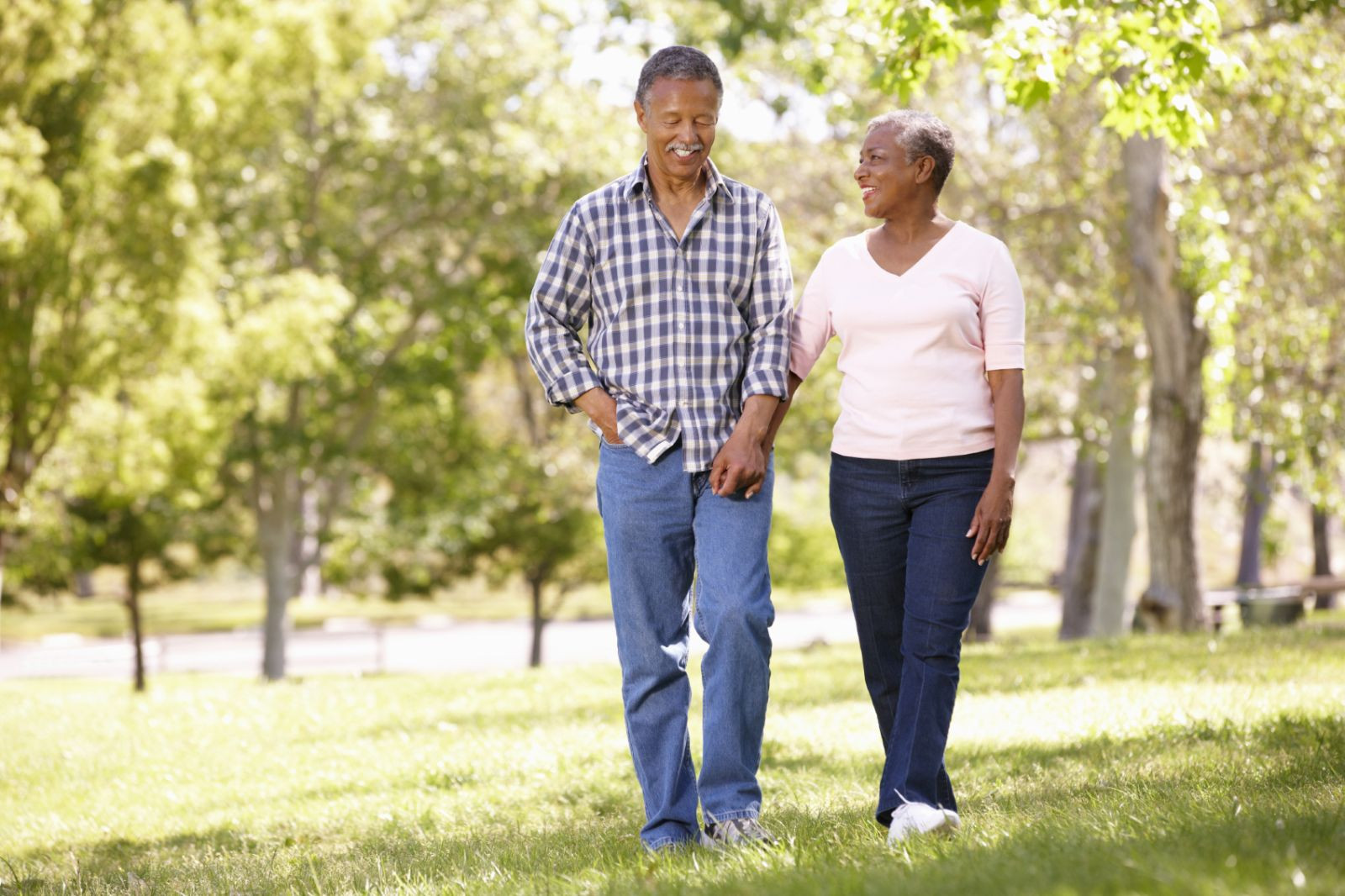
Salmonella is sneaky: Watch out

Two jobs may lower the odds of dying from Alzheimer's disease — but why?

Mastitis: What to do when your breasts are painfully inflamed

How — and why — to fit more fiber and fermented food into your meals

UTI in older women: Why postmenopausal women are susceptible to urinary tract infection, and what to do about it

Can a routine vaccine prevent dementia?

Some adults may need a measles booster shot. Who should get one and why?

Less butter, more plant oils, longer life?

Healthier planet, healthier people

Counting steps is good — is combining steps and heart rate better?
Mobility
- Reviewed by Mallika Marshall, MD, Contributing Editor
From doing daily errands to taking the trip of a lifetime, from going out with friends to staying in your own home, much of living happily and well depends on mobility. But mobility can fade away. Many factors effect your mobility and ability to keep your independence. Exercise, diet, preventive care, and lifestyle choices will keep you stronger and steadier with fewer aches and more stamina. "Use it or lose it" is the mantra for maintaining your mobility.

On this page you'll discover
What is mobility?
Mobility is defined as your ability to move purposefully as you go through your day. It is the foundation for living a healthy and independent life. Mobility comprises all the skills required for everyday living: physical stamina, strength, balance, coordination, and range of motion. The importance of mobility becomes clear when you rise out of bed, shower, manage a flight of stairs, walk half a mile, get in and out of a car, or carry groceries. Mobility also helps us avoid falls and prevent injuries, and allows older adults to live longer on their own. In short, mobility helps you stay "in the game."
Most people spend their lives doing daily tasks without marveling at how much their bodies can actually do. But when we start to lose these basic skills — because of a health problem or the physical decline associated with aging — we begin to understand the importance of mobility, especially for seniors.
Loss of mobility affects a third to half of those ages 65 and older. And statistics from the CDC indicate that close to 14% of American adults have some kind of mobility issue that impacts their ability to safely walk and climb stairs.
How can I improve my mobility?
Regular mobility exercises are the best way to prevent further loss of movement, no matter your age or health.
Mobility workouts help improve strength, stamina, flexibility, and balance, all the necessary features to keep you moving. Exercise also strengthens the muscles and ligaments that support the joints most involved with mobility. Your doctor or a trainer can help you find hip mobility exercises, shoulder mobility exercises, and knee mobility exercises to preserve and improve your freedom of movement.
For healthy adults, guidelines recommend at least 150 minutes of moderate-intensity aerobic exercise per week, and twice-weekly strength training and balance exercises. Adults who cannot meet this minimum requirement because of existing mobility issues should try to be as physically active as their abilities and health allow. Some exercise is always better than none.
Which exercises are best for mobility? Anything that gets the body moving and the heart pumping is beneficial. These include power walking, running, cycling, and swimming, as well as activities like water aerobics, dance classes, golf, kayaking, and pickleball.
Building your muscle strength can improve mobility at all ages and fitness levels. The best way to increase strength is through weight training using dumbbells, barbells, kettlebells, medicine balls, weight machines, and even your own body weight. You should do weight training only after checking with your doctor, and then ideally get started with the help of a professional trainer. But once you learn the exercises, you can do workouts at home. Resistance training that uses straps or bands may be better suited for people with physical strength limitations.
People often wonder about the difference between mobility and flexibility. To be clear, flexibility is a key part of maintaining mobility, and is the ability for joints to move freely through a range of motion and without pain. The gentle stretching and flowing movements of yoga, tai chi, and qi gong can help with mobility by improving flexibility, balance, and core strength. You can also perform home stretching workouts that focus on trouble spots like shoulders, hips, and knees.
What aids help mobility?
Many mobility aids allow you to stay active by improving stability and taking a load off painful hips or knees. The most common aids are canes and mobility walkers. Your doctor or physical therapist can tell you which one is appropriate for your needs, help you select the right type and size, and teach you how to use it.

Salmonella is sneaky: Watch out

Two jobs may lower the odds of dying from Alzheimer's disease — but why?

Mastitis: What to do when your breasts are painfully inflamed

How — and why — to fit more fiber and fermented food into your meals

UTI in older women: Why postmenopausal women are susceptible to urinary tract infection, and what to do about it

Can a routine vaccine prevent dementia?

Some adults may need a measles booster shot. Who should get one and why?

Less butter, more plant oils, longer life?

Healthier planet, healthier people

Counting steps is good — is combining steps and heart rate better?
Free Healthbeat Signup
Get the latest in health news delivered to your inbox!
Sign Up

